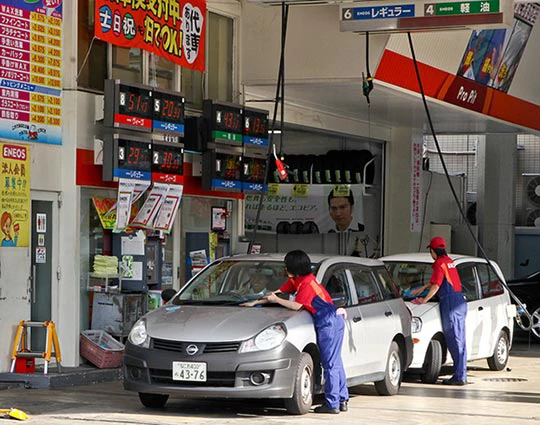
Image "Pro Pit" by Aaron Webb is licensed under CC BY-NC-SA 2.0
“Never let an opportunity pass by, but always think twice before acting,” says a Japanese proverb with particular pertinence for East Asia today.
Plunging oil prices present a significant opportunity for most of the region’s developing countries to strengthen the competitiveness of their economies and take advantage of the ongoing global recovery.
The drop in oil prices — over 50% since mid-2014 — reflects several years of increasing oil supply, particularly in North America, along with decreased geopolitical risks to global production, OPEC’s efforts to maintain production levels and market share, and weaker-than-expected global growth last year. These factors are likely to persist, with oil prices expected to remain low through at least 2016.
Most countries in East Asia, including Japan, benefit from the price decline because they are oil importers. They can expect more rapid economic growth, lower inflation and improved current account balances.
The World Bank’s latest Global Economic Prospects report projects that Japan’s growth will recover to about 1.2% in 2015 and 1.6% in 2016 after a disappointing performance last year, with declining oil prices boosting consumer purchasing power to compensate for weak wage growth and rising import costs.
For Thailand, another oil importer, the benefit of lower prices could mean a boost in economic growth in 2016 of almost half a percentage point.
Developing nations in East Asia should take advantage of this opportunity by promoting regional integration, especially through trade and investment.
Research shows investment in infrastructure — provided that investment is planned, priced and regulated properly — can increase GDP growth, making it among the most effective ways to accelerate and sustain medium-term growth in lower- and middle-income countries.
Lower oil prices will allow governments to finance the public’s contribution to infrastructure spending by raising taxes on petroleum products as well as by lowering fuel subsidies, as Indonesia and Malaysia have done.
At last year’s World Bank Annual Meetings, Japan and other advanced economies, together with the World Bank and other multilateral development banks, launched the Global Infrastructure Facility (GIF) intended to help build a pipeline of viable projects so developing countries can meet their infrastructure needs.
Japan’s private sector recently joined the effort, with Bank of Tokyo Mitsubishi UFJ signing on as the first private sector GIF partner from Japan.
Strengthening regional economic integration represents another opportunity for much of East Asia. The ASEAN Economic Community, which will come into effect by the end of 2015, will be the world’s largest regional trading bloc by population. Through it, ASEAN member states and other countries including Japan can deepen economic ties through trade, official development assistance and closer regional cooperation.
Not all the impacts of low oil prices are beneficial. For oil exporters such as Malaysia and Timor Leste, the drop in prices means weaker current accounts and lower fiscal revenues. If other commodities — especially gas — follow the same trend as oil, countries such as Indonesia could also be hurt.
The priority for these commodity-dependent countries must be to continue to diversify their export and production base over time by increasing their overall competitiveness. Particular emphasis is required on reforms such as strengthening regulatory and legal institutions, enhancing skills, and improving the business climate.
A volatile global economy presents challenges but also opportunities that must be seized in East Asia. Doing so requires the leadership to implement the necessary reforms.
It will also require international cooperation. The World Bank is already working with its partner countries in East Asia to help implement the infrastructure agenda, and translate the opportunities created by falling oil prices into enhanced economic competitiveness.


Join the Conversation